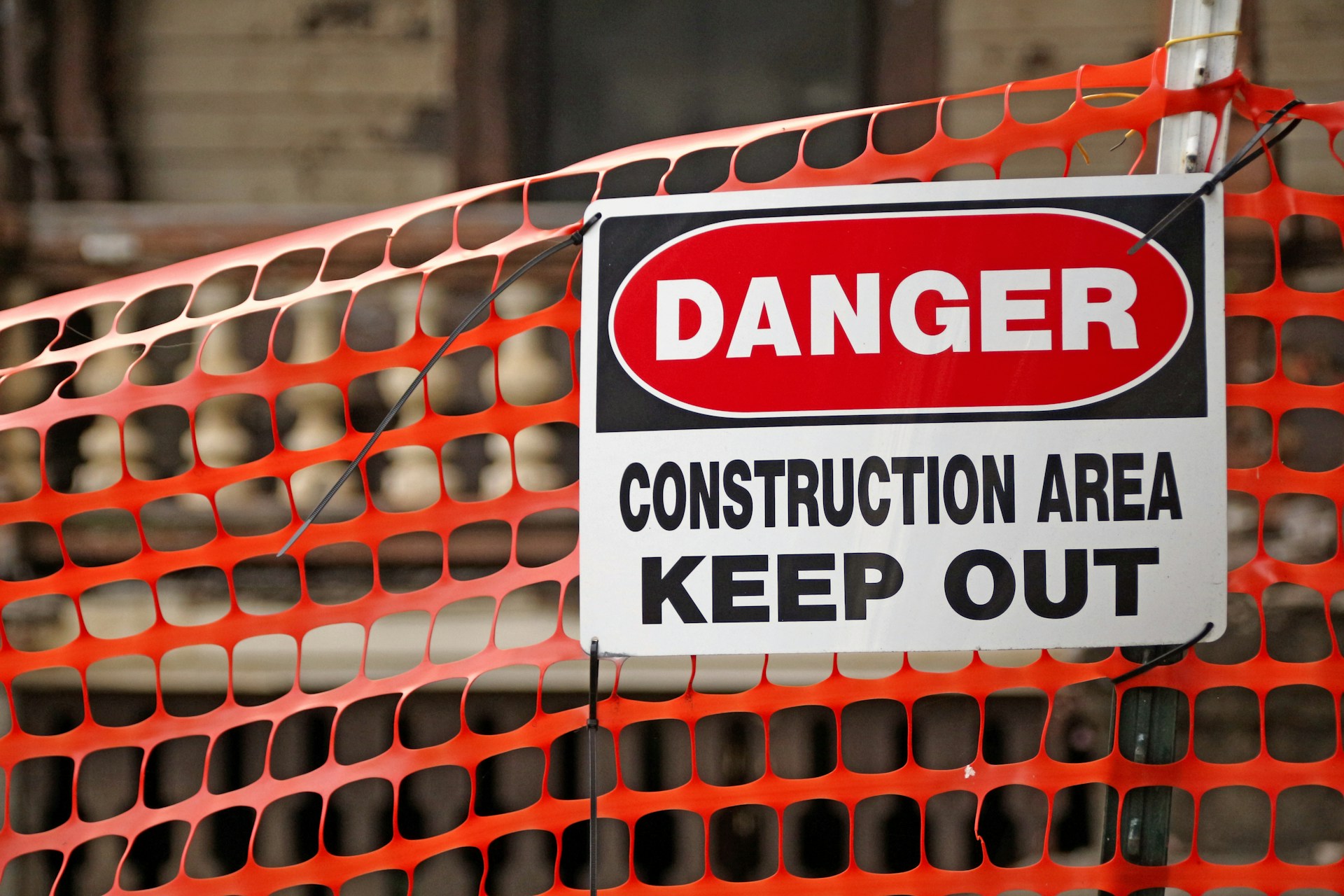Performance bonds are essential financial guarantees that play a crucial role in managing risk for construction projects. These bonds serve as a safeguard for project owners, ensuring that contracted work will be completed according to the agreed-upon terms. Essentially, performance bonds protect against contractor default—a significant concern in an industry where unexpected challenges can derail even the most promising projects.
When we issue a performance bond, it typically covers the full amount of the construction contract, providing maximum protection for the project owner or developer. If the contractor fails to meet their obligations under the contract, the surety company that issued the bond steps in. We may either complete the project ourselves or compensate the owner financially, up to the full bond amount.
By providing this guarantee, performance bonds create a strong incentive for contractors to fulfill their commitments. Simultaneously, they offer project owners peace of mind that their investment is protected. This risk mitigation benefits all parties involved in a construction project, from developers and lenders to subcontractors and suppliers.
The presence of a performance bond can determine a project’s success or failure when unexpected setbacks occur. By ensuring projects reach completion even if the original contractor falters, these bonds keep developments on track and protect the interests of all stakeholders. For any major construction undertaking, a properly structured performance bond is an essential risk management tool.
How Do Performance Bonds Work in Construction Projects?

Performance bonds function through a three-party relationship in construction projects. This relationship involves the property owner (the obligee), the contractor (the principal), and the surety company. As the general contractor, we coordinate with all parties to ensure the bonding process proceeds smoothly.
The process begins before construction starts, when we as the contractor secure the performance bond. Typically, the bond covers the full contract price of the project, offering maximum protection for the property owner. By obtaining the bond, we demonstrate our commitment and financial capability to complete the work as specified.
If a contractor fails to meet their contractual obligations, the surety steps in to address the issue. They have several options to fulfill the bond:
- Complete the project themselves by hiring and managing subcontractors
- Hire a new general contractor to finish the work
- Provide financial compensation to the property owner up to the bond amount
This arrangement strongly incentivizes contractors like us to honor our contracts, while protecting owners from risks such as project abandonment or substandard work. The indemnity agreement we sign with the surety motivates us to perform, as we would be liable for any claims paid out.
For property owners and developers, performance bonds offer peace of mind. They ensure that even if the original contractor encounters difficulties, the project will still be completed as planned. This security encourages more ambitious developments and complex construction projects.
In our experience managing large-scale construction projects, performance bonds play a crucial role in building trust among stakeholders. They align incentives and create a framework for successful project delivery. As your general contractor, we navigate this process to ensure your project has the financial backing and guarantees necessary for success.
What Are the Requirements for Obtaining a Performance Bond?
The requirements for obtaining a performance bond become increasingly stringent as the bond size increases. We tailor our underwriting process to evaluate contractors based on their financial stability, management experience, and track record of successful project completions. Here’s a breakdown of what we typically require:
For Bonds Under $750,000
- A simple one or two-page application
- Strong personal and business credit history
- Evidence of similar-sized completed projects
For Bonds $750,000 to $1.5 Million
- Financial statements from both the contracting company and its owner(s)
- More detailed information on past projects and current workload
- Proof of adequate working capital and equipment resources
For Bonds Exceeding $1.5 Million
- CPA-prepared financial statements
- Detailed job performance tracking reports (e.g., work-in-progress schedules)
- Comprehensive business plan and financial projections
- In-depth review of management team qualifications
Our surety specialists conduct a thorough assessment of each contractor’s overall financial health, operational capabilities, and industry experience. We look at factors like:
- Debt-to-equity ratios and other key financial metrics
- Consistency of profitability over multiple years
- Quality of internal accounting and project management systems
- Strength of banking relationships and lines of credit
- Safety record and quality control procedures
Contractors can improve their chances of approval by maintaining organized financial records, building a strong portfolio of completed projects, and cultivating relationships with reputable subcontractors and suppliers. We’re here to guide you through the bonding process and help structure a program that allows your business to grow responsibly.
Remember, these are general guidelines. Our experienced underwriters take a holistic view of each contractor’s unique situation. We are committed to finding creative solutions that enable qualified contractors to secure the bonding capacity they need to pursue new opportunities and expand their businesses.
What Happens When a Contractor Defaults on a Performance Bond?

When a contractor fails to meet their contractual obligations, it sets off a chain of events involving the project owner, the surety company, and possibly other parties. Here’s how the process typically unfolds:
Filing the Claim
The project owner starts by filing a claim with the surety company that issued the performance bond, stating that the contractor has defaulted on their contractual obligations.
Surety Investigation
Upon receiving the claim, the surety company conducts an investigation to verify its validity. This may involve:
- Reviewing project documentation
- Inspecting the completed work
- Interviewing the contractor, owner, and other relevant parties
- Assessing the remaining work and associated costs
Claim Resolution
If the surety determines the claim is valid, they can choose from several options to meet their obligation under the performance bond:
- Financial Payout: The surety might pay the bond amount to the project owner, up to the limit of the bond.
- Contractor Financing: The surety could provide additional funds to the original contractor for project completion.
- Replacement Contractor: The surety may collaborate with the owner to select a new contractor to finish the project, covering any excess costs.
- Project Takeover: As a last resort, the surety may take full responsibility for completing the project, effectively becoming the general contractor.
Contractor Obligations
It’s important to note that the defaulting contractor is not relieved of responsibility when the surety intervenes. Under the indemnity agreement signed when the bond was obtained, the contractor must reimburse the surety for all expenses incurred in resolving the claim. This can include:
- Costs to complete the project
- Legal fees
- Investigation expenses
- Any other losses the surety incurs
This financial responsibility can have serious consequences for the contractor’s business and affect their future ability to obtain bonding.
Real-World Example
Consider a case where a contractor abandons a $5 million municipal building project halfway through. The city files a claim on the performance bond. After investigation, the surety determines that the remaining work will cost $3 million to complete. They might then:
- Hire a new contractor for $3 million to finish the job
- Cover legal and administrative costs of $200,000
- Seek to recover the total $3.2 million from the defaulting contractor through the indemnity agreement
This example demonstrates how performance bonds protect project owners while posing significant financial risk for contractors who fail to meet their obligations.
Why Are Performance Bonds Required for Construction Projects?
Performance bonds are a crucial component of risk management in the construction industry, serving essential roles for project owners, contractors, and other stakeholders. There are several key reasons why performance bonds are commonly required:
Legal Requirements
For public construction projects, performance bonds are often mandated by law. The federal Miller Act requires performance bonds for all federally funded construction projects valued at $100,000 or more. Similarly, most states have enacted their own ‘Little Miller Acts’ that impose bonding requirements on state and local government projects. While not universally required for private developments, performance bonds are increasingly common in large commercial construction projects as well.
Protection for Project Owners
Performance bonds provide key financial protection for project owners. If a contractor defaults or fails to complete the work as specified, the surety company backing the bond is obligated to step in. This may involve financing the original contractor to finish the job, hiring a replacement contractor, or providing compensation up to the bond amount. This guarantee helps insulate owners from potentially devastating costs of contractor failure.
Contractor Credibility
For contractors, the ability to obtain performance bonds serves as a mark of financial stability and trustworthiness. The rigorous underwriting process that sureties use to evaluate contractors acts as a form of prequalification. Owners can be more confident in bonded contractors, knowing they have passed this financial scrutiny. As such, being bondable often gives contractors a competitive edge when bidding for work.
Project Continuity
Performance bonds help ensure that construction projects can continue even if the primary contractor encounters difficulties. This continuity is vital for subcontractors and suppliers, who depend on steady project progress for their cash flow and scheduling. The assurance provided by performance bonds helps maintain the complex web of relationships that support major construction efforts.
Comprehensive Risk Mitigation
Performance bonds are typically part of a broader bonding framework that includes bid bonds and payment bonds. Together, these create a network of financial security throughout the construction process. Bid bonds ensure serious, qualified bidders. Payment bonds guarantee that subcontractors and suppliers will be paid. Performance bonds ensure project completion. This comprehensive approach helps mitigate various risks inherent in complex construction projects.
In essence, performance bonds play a vital role in the construction industry by providing financial security, ensuring project completion, and fostering trust between project owners and contractors. While they represent an upfront cost, the risk mitigation and stability they provide make performance bonds an invaluable tool in construction project management.
| Risk Management Tool | Function |
|---|---|
| Performance Bonds | Guarantee project completion and protect project owners from contractor default. |
| Bid Bonds | Ensure that serious, qualified bidders participate in the project bidding process. |
| Payment Bonds | Guarantee that subcontractors and suppliers will be paid for their work and materials. |
Conclusion: Performance Bonds as Essential Risk Management Tools

Performance bonds play an integral role in the success of construction projects by providing financial security to owners and ensuring contractors fulfill their obligations. Although obtaining these bonds involves upfront costs for contractors, the risk mitigation and trust they foster make them invaluable tools in construction project management. Instead of viewing performance bonds as obstacles, contractors should regard them as business assets that can unlock new opportunities.
For project owners, performance bonds offer protection against contractor default or non-performance. This enables owners to move forward with greater confidence, knowing they have recourse if issues arise. Contractors who can secure performance bonds demonstrate their financial stability and capability to complete projects as specified. This builds trust with clients and can lead to more contract awards over time.
By leveraging performance bonds effectively, both contractors and project owners can focus on successfully completing projects rather than worrying about potential risks. The stability these bonds provide contributes to smoother project execution and better outcomes across the construction industry. As essential risk management tools, performance bonds help create an environment where all parties can work together with increased confidence toward shared goals.
While the process of obtaining performance bonds may seem daunting initially, contractors who view them as opportunities rather than challenges will be better positioned for long-term success. By working with reputable surety providers and maintaining strong business practices, contractors can steadily increase their bonding capacity over time. This opens up possibilities for taking on larger, more complex projects and growing their businesses.
Protect your investment and build with peace of mind—let EB3 Construction manage your next project with the financial guarantees you need. Contact us today to ensure your job is backed by proven expertise and reliable performance bonds.




